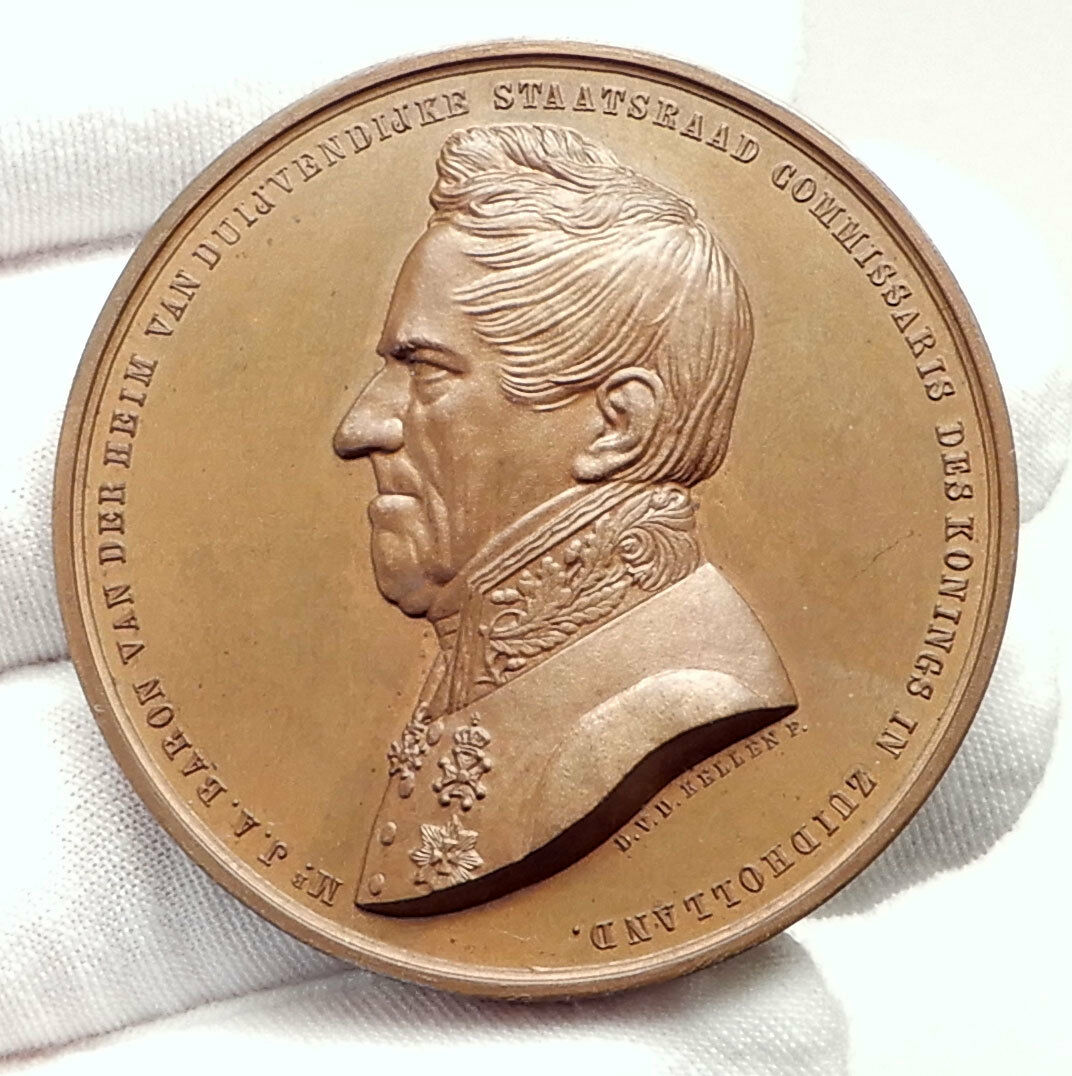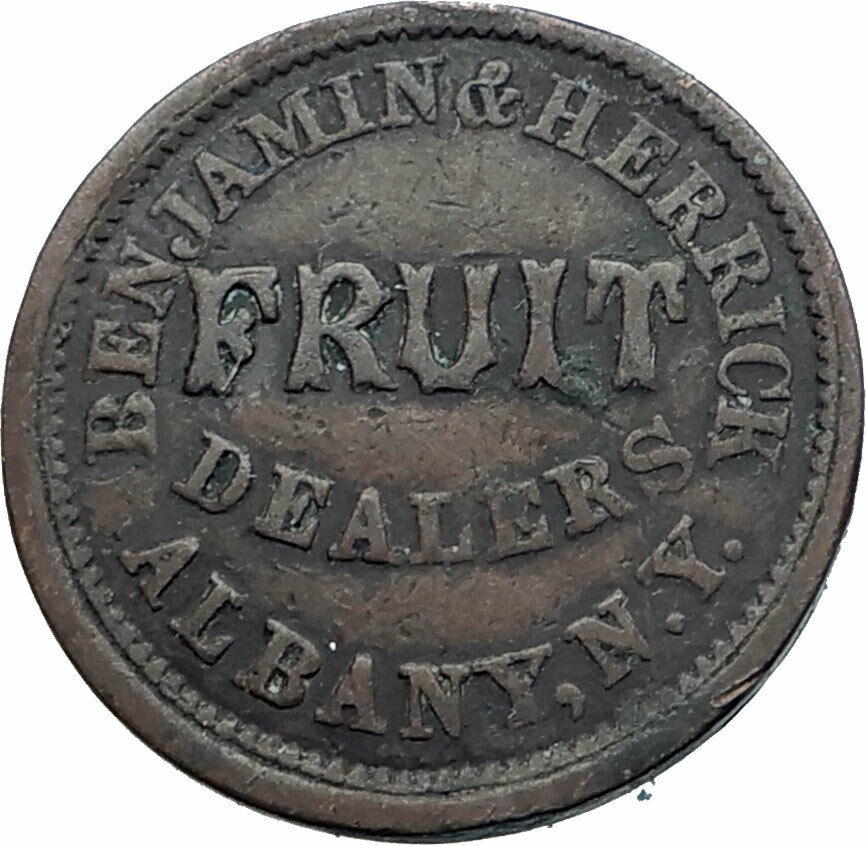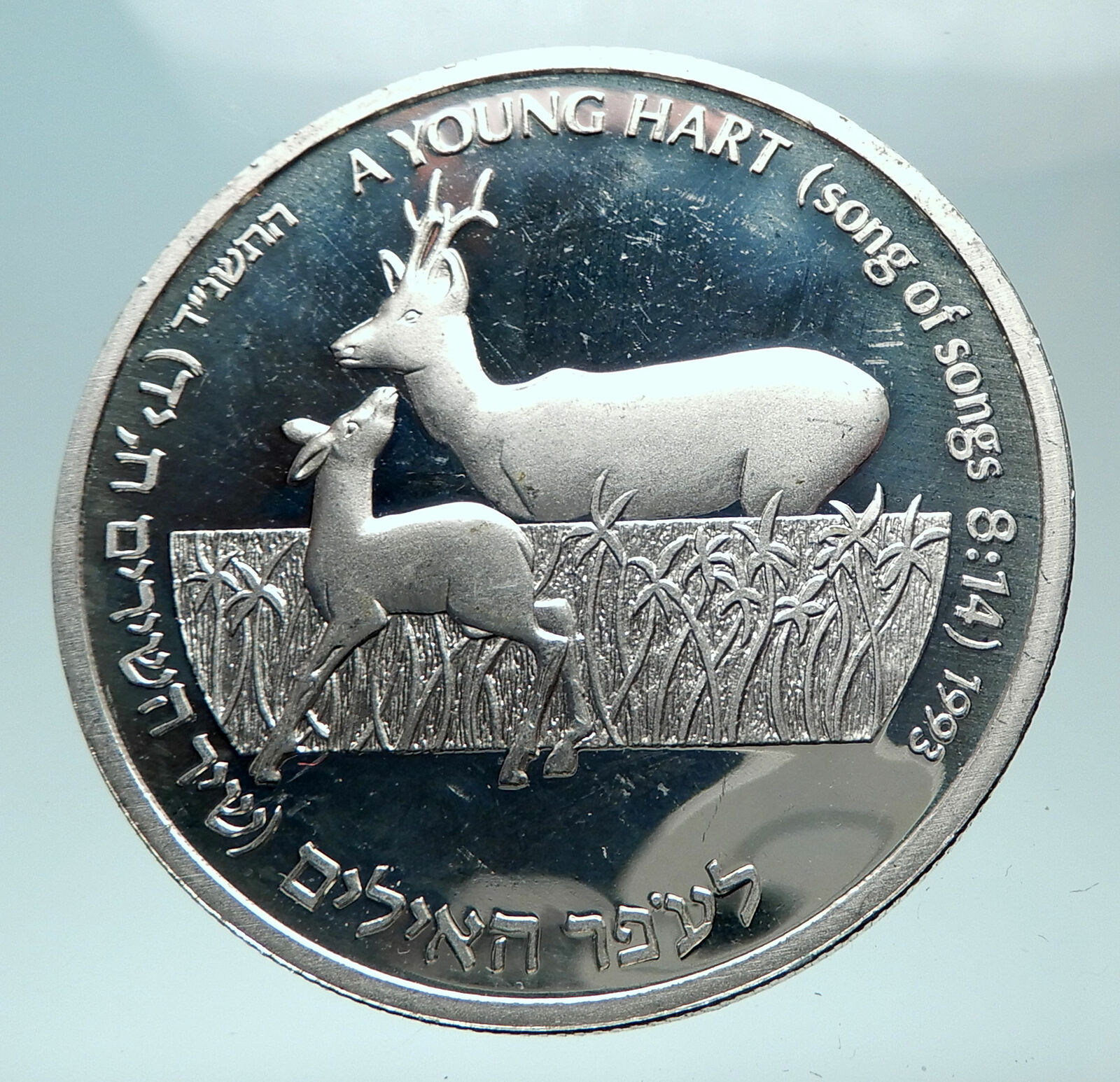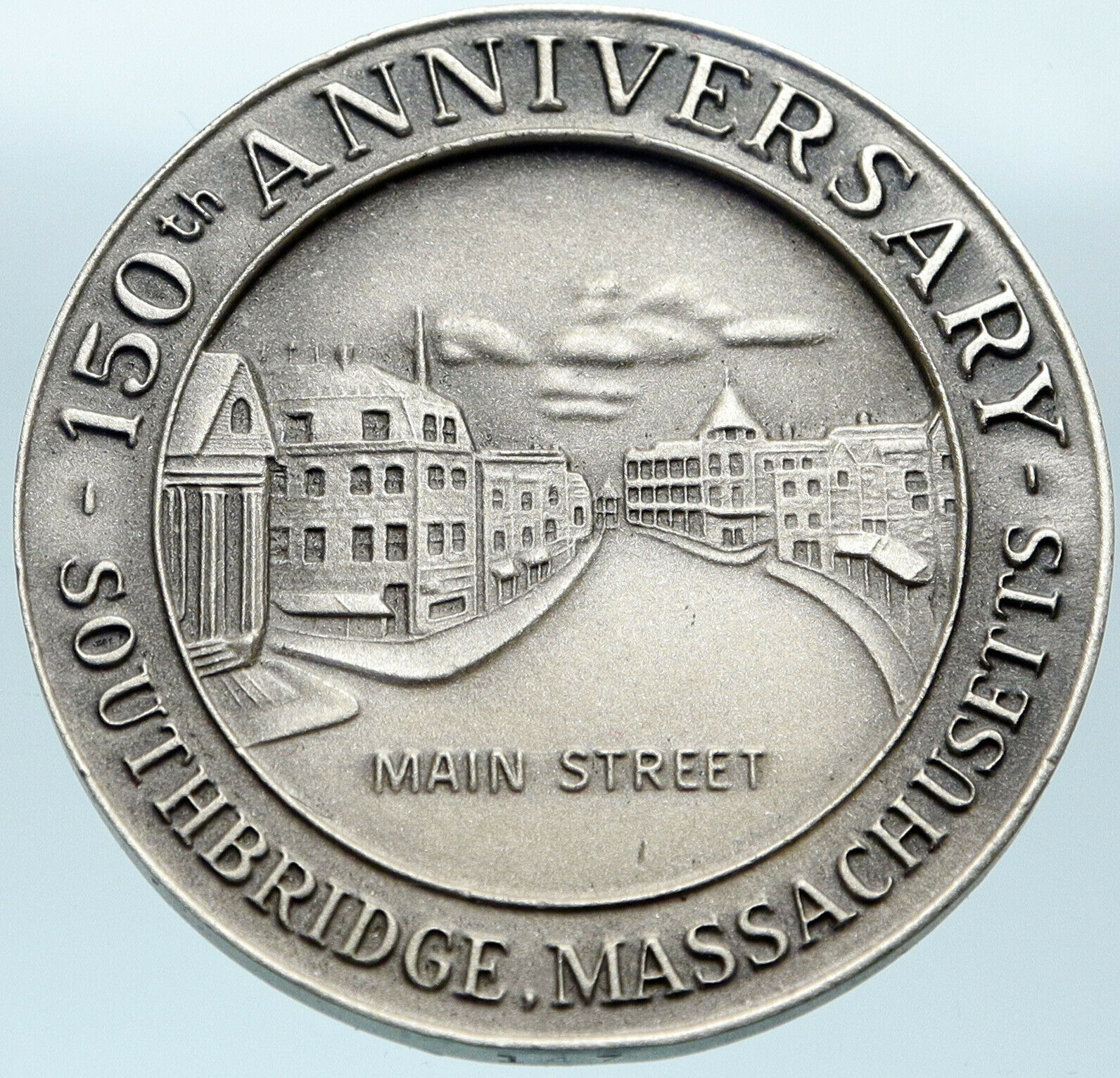|
Israel – Arthur Rubenstein International First Piano Competition
1974
Silver Medal 45mm (47.30 grams) 0.935 Silver
Reference: CF ICMC#
25076377
Picasso’s portrait of Arthur Rubinstein (Artwork with his signature to bottom left.)
1st Arthur Rubinstein International Piano Master Competition Jerusalem 1974, Menorah Israeli State symbol (Menorah).
EDGE:
STATE OF ISRAEL STERLING 935 2369
Coin Notes:
The Third International Arthur Rubinstein Piano Competition took place in Israel during 1980. The first competition was in 1974 and the second in 1977.
You are bidding on the exact item pictured, provided with a Certificate of Authenticity and Lifetime Guarantee of Authenticity.
 Arthur Rubinstein KBE OSE GOSE (Polish: Artur Rubinstein; 28 January 1887 – 20 December 1982) was a Polish-American classical pianist. He is widely regarded as one of the greatest pianists of all time. He received international acclaim for his performances of the music written by a variety of composers and many regard him as the greatest Chopin interpreter of his time. He played in public for eight decades. Arthur Rubinstein KBE OSE GOSE (Polish: Artur Rubinstein; 28 January 1887 – 20 December 1982) was a Polish-American classical pianist. He is widely regarded as one of the greatest pianists of all time. He received international acclaim for his performances of the music written by a variety of composers and many regard him as the greatest Chopin interpreter of his time. He played in public for eight decades.
In 1904, Rubinstein moved to Paris to launch his career in earnest, where he met the composers Maurice Ravel and Paul Dukas and the violinist Jacques Thibaud. He also played Camille Saint-Saëns’ Piano Concerto No. 2 in the presence of the composer. Through the family of Juliusz Wertheim (to whose understanding of Chopin’s genius Rubinstein attributed his own inspiration in the works of that composer) he formed friendships with the violinist Paul Kochanski and composer Karol Szymanowski.
Rubinstein made his New York debut at Carnegie Hall in 1906, and thereafter toured the United States, Austria, Italy, and Russia. According to his own testimony and that of his son in François Reichenbach’s film L’Amour de la vie (1969), he was not well received in the United States. By 1908, Rubinstein, destitute and desperate, hounded by creditors, and threatened with being evicted from his Berlin hotel room, made a failed attempt to hang himself. Subsequently, he said that he felt “reborn” and endowed with an unconditional love of life. In 1912, he made his London debut, and found a musical home there in the Edith Grove, Chelsea, musical salon of Paul and Muriel Draper, in company with Kochanski, Igor Stravinsky, Jacques Thibaud, Pablo Casals, Pierre Monteux and others.
During World War I, Rubinstein stayed in London, giving recitals and accompanying the violinist Eugène Ysaÿe. In 1916 and 1917, he made his first tours in Spain and South America where he was wildly acclaimed. It was during those tours that he developed a lifelong enthusiasm for the music of Enrique Granados, Isaac Albéniz, Manuel de Falla, and Heitor Villa-Lobos. He was the dedicatee of Manuel de Falla’s Fantasía Bética, Villa-Lobos’s Rudepoêma and Stravinsky’s Trois mouvements de Petrouchka.
Rubinstein was disgusted by Germany’s conduct during the war and never played there again. His last performance in Germany was in 1914.
 In the autumn of 1919 Rubinstein toured the British provinces with soprano Emma Calvé and tenor Vladimir Rosing. In the autumn of 1919 Rubinstein toured the British provinces with soprano Emma Calvé and tenor Vladimir Rosing.
From England, Rubinstein left Southampton on January 5, 1920, bound for New York on the Red Star Line “Lapland”.
In 1921 Rubinstein gave two American tours, travelling to New York with Karol Szymanowski and his close friend Paul Kochanski.
In 1934, the pianist, who stated he neglected his technique in his early years, relying instead on natural talent, withdrew from concert life for several months of intensive study and practice.
Rubinstein toured the United States again in 1937, his career becoming centered there during the World War II years when he lived in Brentwood, California. He became a naturalized US citizen in 1946.
During his time in California, Rubinstein provided the piano soundtrack for several films, including Song of Love with Katharine Hepburn. He appeared, as himself, in the films Carnegie Hall and Of Men and Music.
Although best known as a recitalist and concerto soloist, Rubinstein was also considered an outstanding chamber musician, partnering with such luminaries as Henryk Szeryng, Jascha Heifetz, Pablo Casals, Gregor Piatigorsky and the Guarneri Quartet. Rubinstein recorded much of the core piano repertoire, particularly that of the Romantic composers. At the time of his death, The New York Times in describing him wrote, “Chopin was his specialty … it was [as] a Chopinist that he was considered by many without peer.” With the exception of the Études, he recorded most of the works of Chopin. In 1964, at the height of the Cold War, he gave a legendary concert in Moscow, with a pure Chopin program. He was one of the earliest champions of Spanish and South American composers, as well as French composers of the early 20th century (such as Debussy and Ravel). In addition, Rubinstein promoted the music of his compatriot Karol Szymanowski. Rubinstein, in conversation with Alexander Scriabin, named Brahms as his favorite composer, a response that enraged Scriabin.
 In 1969, the film Arthur Rubinstein – The Love of Life was released; it won the Academy Award for Best Documentary Feature. (A later TV special, Rubinstein at 90, highlighted how he had been playing for people for eight decades.) In 1969, the film Arthur Rubinstein – The Love of Life was released; it won the Academy Award for Best Documentary Feature. (A later TV special, Rubinstein at 90, highlighted how he had been playing for people for eight decades.)
By the mid-1970s, Rubinstein’s eyesight had begun to deteriorate. He retired from the stage at age 89 in May 1976, giving his last concert at London’s Wigmore Hall, where he had first played nearly 70 years before.
Rubinstein, who was fluent in eight languages, held much of the repertoire (and not only that of the piano) in his formidable memory. According to his memoirs, he learned César Franck’s Symphonic Variations while on a train en route to the concert, without the benefit of a piano, practicing passages in his lap. Rubinstein described his memory as photographic, to the extent that he would visualize an errant coffee stain while recalling a score.
Rubinstein also had exceptionally developed aural abilities, which allowed him to play whole symphonies in his mind. “At breakfast, I might pass a Brahms symphony in my head,” he said. “Then I am called to the phone, and half an hour later I find it’s been going on all the time and I’m in the third movement.” This ability was often tested by Rubinstein’s friends, who would randomly pick extracts from opera and symphonic scores and ask him to play them from memory.
Rubinstein’s autobiography contained two volumes: My Young Years (1973); and My Many Years (1980). Many were displeased by their emphasis on personal anecdotes over music. Pianist Emanuel Ax, one of Rubinstein’s greatest admirers, was profoundly disappointed by reading My Many Years: “Until then,” he told Harvey Sachs, “I had idolized Rubinstein-I had wanted to have a life like his, the book changed all that.”
In a reflective muse, Rubinstein once noted “It is simply my life, music. I live it, breathe it, talk with it. I am almost unconscious of it. No, I do not mean I take it for granted-one should never take for granted any of the gifts of God. But it is like an arm, a leg, part of me. On the other hand, books and paintings and languages and people are passions with me, always to be cultivated. Travel too. I am a lucky man to have a business which allows me to be on the road so much. On the train, the plane, I have time to read. There again, I am a lucky man to be a pianist. A splendid instrument, the piano, just the right size so that you cannot take it with you. Instead of practicing, I can read. A fortunate fellow, am I not?”
 Israel (/ˈɪzriəl, ˈɪzreɪəl/; Hebrew: יִשְׂרָאֵל; Arabic: إِسْرَائِيل), officially the State of Israel, is a country in the Middle East, on the southeastern shore of the Mediterranean Sea and the northern shore of the Red Sea. It has land borders with Lebanon to the north, Syria to the northeast, Jordan on the east, the Palestinian territories of the West Bank and Gaza Strip to the east and west, respectively, and Egypt to the southwest. The country contains geographically diverse features within its relatively small area. Israel’s economic and technological center is Tel Aviv, while its seat of government and proclaimed capital is Jerusalem, although the state’s sovereignty over Jerusalem has only partial recognition. Israel (/ˈɪzriəl, ˈɪzreɪəl/; Hebrew: יִשְׂרָאֵל; Arabic: إِسْرَائِيل), officially the State of Israel, is a country in the Middle East, on the southeastern shore of the Mediterranean Sea and the northern shore of the Red Sea. It has land borders with Lebanon to the north, Syria to the northeast, Jordan on the east, the Palestinian territories of the West Bank and Gaza Strip to the east and west, respectively, and Egypt to the southwest. The country contains geographically diverse features within its relatively small area. Israel’s economic and technological center is Tel Aviv, while its seat of government and proclaimed capital is Jerusalem, although the state’s sovereignty over Jerusalem has only partial recognition.

Israel has evidence of the earliest migration of hominids out of Africa. Canaanite tribes are archaeologically attested since the Middle Bronze Age, while the Kingdoms of Israel and Judah emerged during the Iron Age. The Neo-Assyrian Empire destroyed Israel around 720 BCE. Judah was later conquered by the Babylonian, Persian and Hellenistic empires and had existed as Jewish autonomous provinces. The successful Maccabean Revolt led to an independent Hasmonean kingdom by 110 BCE, which in 63 BCE however became a client state of the Roman Republic that subsequently installed the Herodian dynasty in 37 BCE, and in 6 CE created the Roman province of Judea. Judea lasted as a Roman province until the failed Jewish revolts resulted in widespread destruction, expulsion of Jewish population and the renaming of the region from Iudaea to Syria Palaestina.[34] Jewish presence in the region has persisted to a certain extent over the centuries. In the 7th century the Levant was taken from the Byzantine Empire by the Arabs and remained in Muslim control until the First Crusade of 1099, followed by the Ayyubid conquest of 1187. The Mamluk Sultanate of Egypt extended its control over the Levant in the 13th century until its defeat by the Ottoman Empire in 1517. During the 19th century, national awakening among Jews led to the establishment of the Zionist movement in the diaspora followed by waves of immigration to Ottoman and later British Palestine.
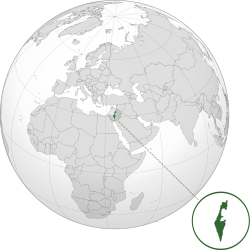 In 1947, the United Nations adopted a Partition Plan for Palestine recommending the creation of independent Arab and Jewish states and an internationalized Jerusalem. The plan was accepted by the Jewish Agency, and rejected by Arab leaders. The following year, the Jewish Agency declared the independence of the State of Israel, and the subsequent 1948 Arab-Israeli War saw Israel’s establishment over most of the former Mandate territory, while the West Bank and Gaza were held by neighboring Arab states. Israel has since fought several wars with Arab countries, and it has since 1967 occupied territories including the West Bank, Golan Heights and the Gaza Strip (still considered occupied after 2005 disengagement, although some legal experts dispute this claim).[41][42][43][fn 4] It extended its laws to the Golan Heights and East Jerusalem, but not the West Bank. Israel’s occupation of the Palestinian territories is the world’s longest military occupation in modern times.[fn 4][49] Efforts to resolve the Israeli-Palestinian conflict have not resulted in a final peace agreement. However, peace treaties between Israel and both Egypt and Jordan have been signed. In 1947, the United Nations adopted a Partition Plan for Palestine recommending the creation of independent Arab and Jewish states and an internationalized Jerusalem. The plan was accepted by the Jewish Agency, and rejected by Arab leaders. The following year, the Jewish Agency declared the independence of the State of Israel, and the subsequent 1948 Arab-Israeli War saw Israel’s establishment over most of the former Mandate territory, while the West Bank and Gaza were held by neighboring Arab states. Israel has since fought several wars with Arab countries, and it has since 1967 occupied territories including the West Bank, Golan Heights and the Gaza Strip (still considered occupied after 2005 disengagement, although some legal experts dispute this claim).[41][42][43][fn 4] It extended its laws to the Golan Heights and East Jerusalem, but not the West Bank. Israel’s occupation of the Palestinian territories is the world’s longest military occupation in modern times.[fn 4][49] Efforts to resolve the Israeli-Palestinian conflict have not resulted in a final peace agreement. However, peace treaties between Israel and both Egypt and Jordan have been signed.
In its Basic Laws, Israel defines itself as a Jewish and democratic state. Israel is a representative democracy[neutrality is disputed] with a parliamentary system, proportional representation and universal suffrage. The prime minister is head of government and the Knesset is the legislature. Israel is a developed country and an OECD member, with the 32nd-largest economy in the world by nominal gross domestic product as of 2017. The country benefits from a highly skilled workforce and is among the most educated countries in the world with one of the highest percentages of its citizens holding a tertiary education degree. Israel has the highest standard of living in the Middle East, and has one of the highest life expectancies in the world.
|









 Arthur Rubinstein KBE OSE GOSE (Polish: Artur Rubinstein; 28 January 1887 – 20 December 1982) was a Polish-American classical pianist. He is widely regarded as one of the greatest pianists of all time. He received international acclaim for his performances of the music written by a variety of composers and many regard him as the greatest Chopin interpreter of his time. He played in public for eight decades.
Arthur Rubinstein KBE OSE GOSE (Polish: Artur Rubinstein; 28 January 1887 – 20 December 1982) was a Polish-American classical pianist. He is widely regarded as one of the greatest pianists of all time. He received international acclaim for his performances of the music written by a variety of composers and many regard him as the greatest Chopin interpreter of his time. He played in public for eight decades.  In the autumn of 1919 Rubinstein toured the British provinces with soprano Emma Calvé and tenor Vladimir Rosing.
In the autumn of 1919 Rubinstein toured the British provinces with soprano Emma Calvé and tenor Vladimir Rosing.  In 1969, the film Arthur Rubinstein – The Love of Life was released; it won the Academy Award for Best Documentary Feature. (A later TV special, Rubinstein at 90, highlighted how he had been playing for people for eight decades.)
In 1969, the film Arthur Rubinstein – The Love of Life was released; it won the Academy Award for Best Documentary Feature. (A later TV special, Rubinstein at 90, highlighted how he had been playing for people for eight decades.)  Israel (/ˈɪzriəl, ˈɪzreɪəl/; Hebrew: יִשְׂרָאֵל; Arabic: إِسْرَائِيل), officially the State of Israel, is a country in the Middle East, on the southeastern shore of the Mediterranean Sea and the northern shore of the Red Sea. It has land borders with Lebanon to the north, Syria to the northeast, Jordan on the east, the Palestinian territories of the West Bank and Gaza Strip to the east and west, respectively, and Egypt to the southwest. The country contains geographically diverse features within its relatively small area. Israel’s economic and technological center is Tel Aviv, while its seat of government and proclaimed capital is Jerusalem, although the state’s sovereignty over Jerusalem has only partial recognition.
Israel (/ˈɪzriəl, ˈɪzreɪəl/; Hebrew: יִשְׂרָאֵל; Arabic: إِسْرَائِيل), officially the State of Israel, is a country in the Middle East, on the southeastern shore of the Mediterranean Sea and the northern shore of the Red Sea. It has land borders with Lebanon to the north, Syria to the northeast, Jordan on the east, the Palestinian territories of the West Bank and Gaza Strip to the east and west, respectively, and Egypt to the southwest. The country contains geographically diverse features within its relatively small area. Israel’s economic and technological center is Tel Aviv, while its seat of government and proclaimed capital is Jerusalem, although the state’s sovereignty over Jerusalem has only partial recognition.
 In 1947, the United Nations adopted a Partition Plan for Palestine recommending the creation of independent Arab and Jewish states and an internationalized Jerusalem. The plan was accepted by the Jewish Agency, and rejected by Arab leaders. The following year, the Jewish Agency declared the independence of the State of Israel, and the subsequent 1948 Arab-Israeli War saw Israel’s establishment over most of the former Mandate territory, while the West Bank and Gaza were held by neighboring Arab states. Israel has since fought several wars with Arab countries, and it has since 1967 occupied territories including the West Bank, Golan Heights and the Gaza Strip (still considered occupied after 2005 disengagement, although some legal experts dispute this claim).[41][42][43][fn 4] It extended its laws to the Golan Heights and East Jerusalem, but not the West Bank. Israel’s occupation of the Palestinian territories is the world’s longest military occupation in modern times.[fn 4][49] Efforts to resolve the Israeli-Palestinian conflict have not resulted in a final peace agreement. However, peace treaties between Israel and both Egypt and Jordan have been signed.
In 1947, the United Nations adopted a Partition Plan for Palestine recommending the creation of independent Arab and Jewish states and an internationalized Jerusalem. The plan was accepted by the Jewish Agency, and rejected by Arab leaders. The following year, the Jewish Agency declared the independence of the State of Israel, and the subsequent 1948 Arab-Israeli War saw Israel’s establishment over most of the former Mandate territory, while the West Bank and Gaza were held by neighboring Arab states. Israel has since fought several wars with Arab countries, and it has since 1967 occupied territories including the West Bank, Golan Heights and the Gaza Strip (still considered occupied after 2005 disengagement, although some legal experts dispute this claim).[41][42][43][fn 4] It extended its laws to the Golan Heights and East Jerusalem, but not the West Bank. Israel’s occupation of the Palestinian territories is the world’s longest military occupation in modern times.[fn 4][49] Efforts to resolve the Israeli-Palestinian conflict have not resulted in a final peace agreement. However, peace treaties between Israel and both Egypt and Jordan have been signed. 

